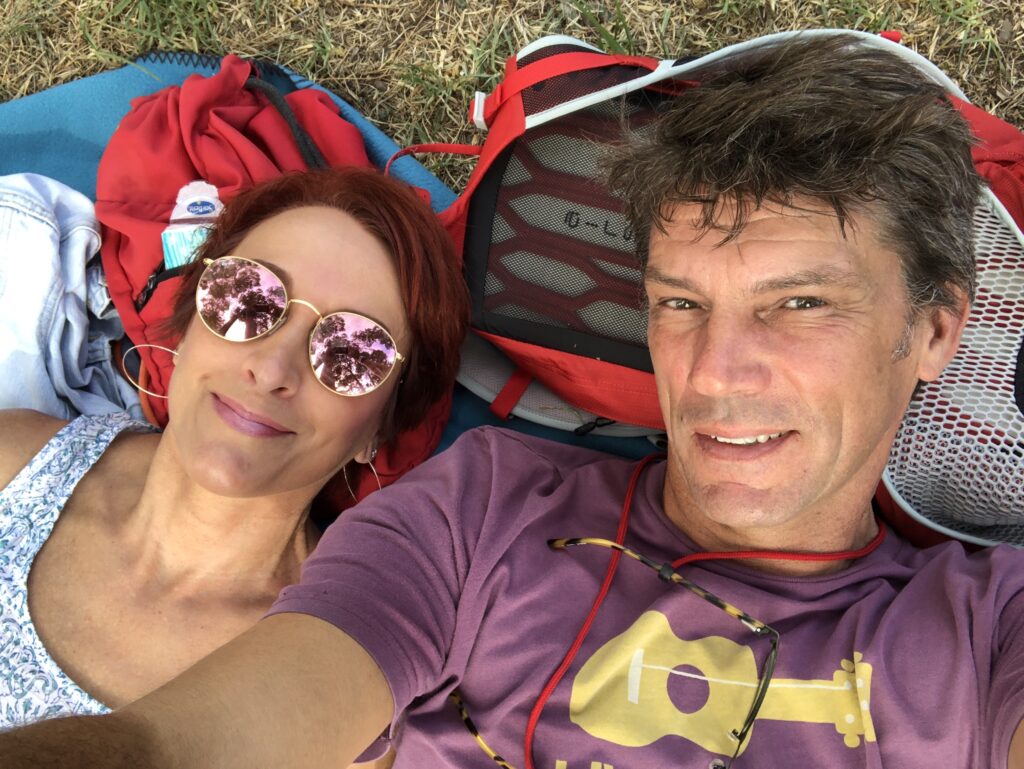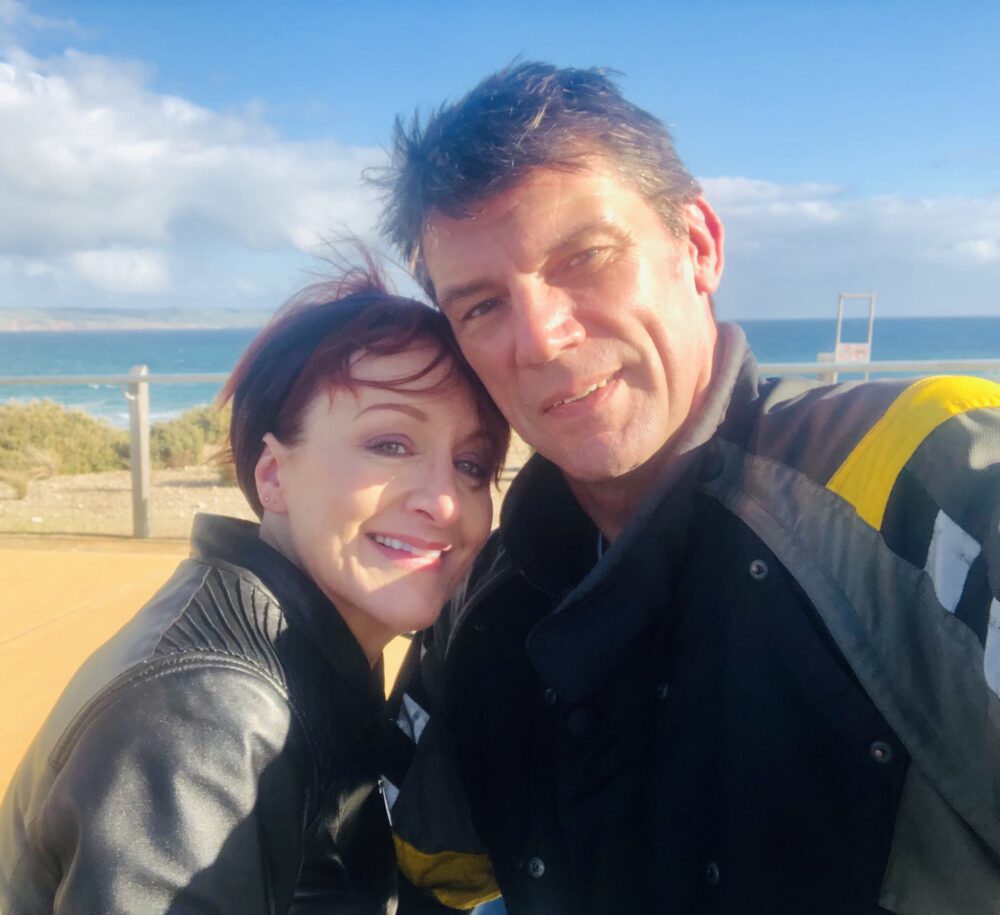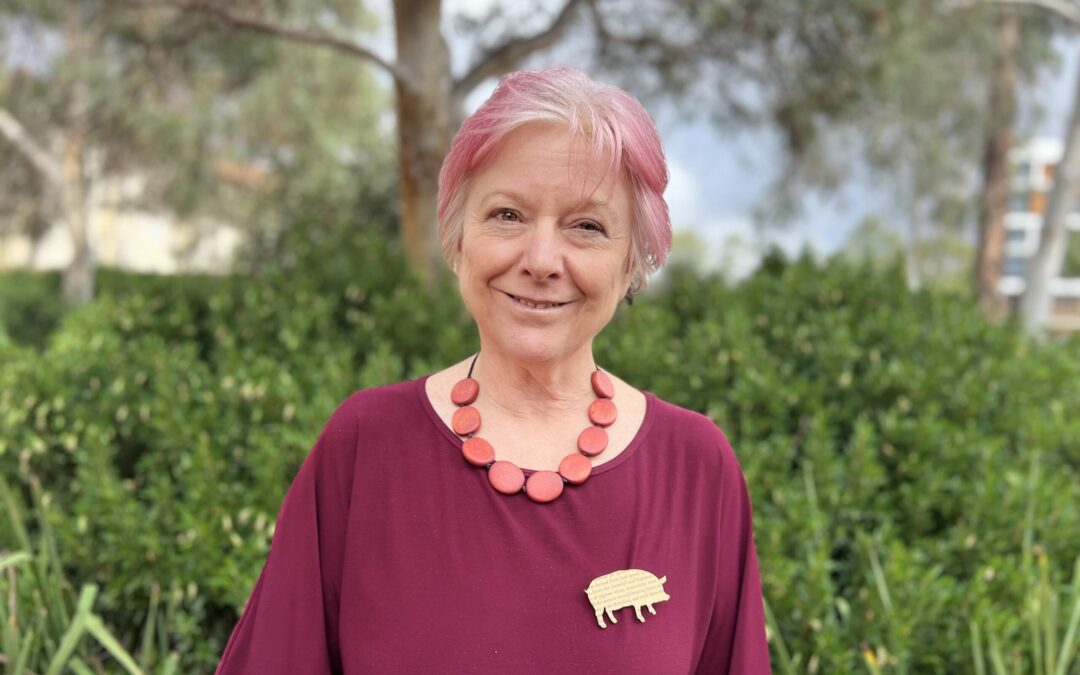It’s something each of us might sometimes wonder. How do you change someone’s mind? This unexpected love story is the ultimate lesson.
It could easily have been one of those Tinder-dates-from-hell you so often read about, or the opening scene of a Hollywood rom-com: an outspoken, staunch feminist meets her online match and discovers he’s a former editor of Playboy magazine. There are so many ways this date could have gone wrong. And yet, three years later, staunch feminist, Dr Niki Vincent and former Playboy editor, Chuck Smeeton, are still together and going strong.
In a world in which there is so much heated division, the way in which Niki and Chuck negotiated a way through their differences provides a master-class in radical empathy. To the uninitiated, this is a concept that encourages people to actively consider another person’s point of view.
“I don’t think Chuck appreciated exactly what kind of a bombshell it actually was at that time,” says Niki, 59, who serves as the Commissioner for Gender Equality in the Public Sector in Victoria. Chuck, 58, is now Chief Operating Officer for the Royal Institution of Australia.
For some, it may have been a ‘deal-breaker’. But Niki, a psychologist, processed Chuck’s revelation in the context of all the other things she had learned about him during, and in the lead-up to, their first date.
As they connected over lunch, Niki found Chuck interesting and engaging – and, she concedes, good looking. But mostly, she was taken by his willingness to talk about his kids. She liked his attitude towards them.
“I have lots of kids in my life – loads. In fact, more than most,” Niki explains. You get the sense that if Chuck wasn’t into kids, it would have been more of a deal breaker than being a former Playboy editor.

Chuck says it was Niki’s energy that struck him most, “There was a lot of communication … It was just the energy and excitement … and her eyes. You know, amazing.”
The point of approaching someone with radical empathy is that if someone raises a red flag, instead of following your natural inclination to wrap them in it and bury them, you try to understand how they came to be waving it.
Niki’s personal and professional experience has taught her not to judge people based on their opinions and biases – not to write people off just because you disagree or disapprove of some of the things they say. She explains:
“I’ve realised that people with different – very different – views from me don’t get up in the morning thinking, ‘I’m going to be evil.’ They just have different views. And they think they are good people.”
So, while their opinions might make her “a bit cross” she says, “I approach them as good people with different ideas.”
Not only has this approach allowed Niki to date different kinds of people, she believes it has helped her to have some influence on their attitudes. She laughs, “My team used to joke that I was trying to save the world one man at a time – sort of hang out with them and help them understand feminism and my perspective.”
It can’t have put them off because she remains friends with most of the men she dated after her divorce.
During this time Niki began to realise that many men’s attitudes weren’t coming from a place of misogyny, but from a lack of perspective. When feminist perspectives were introduced in a non-confrontational way, many of the men Niki dated had the grace and intelligence to accept they just hadn’t looked at things from a woman’s perspective. That’s not to say they all became feminists, but they came to appreciate her point of view.
“They’ll occasionally send me inappropriate jokes, just to, you know, give me a jab or whatever.”
But, she says, even that indicates they’re looking at those jokes through a different lens.
Given those experiences, says Niki, when Chuck raised a red flag with a Playboy bunny on it:
“I just thought he was like other guys that don’t get this stuff. But, I could also see that he was a guy that was open to exploring things. We had such an easy conversation that I felt I would be able to give him some stuff that he’d probably go away and think about it. I don’t think I analysed it that much at the time. I just hoped he’d be open to it.”
Chuck certainly didn’t think of himself as a misogynist, and it would be unfair to cast him in that light. In fact, most of his time at Playboy was spent as a journalist, and he remains proud of that work.
“You know there is the old story about Playboy, where the quality of articles is what it’s all about,” says Chuck, “It’s true, Playboy has excellent journalism, but in a wrapper that isn’t quite as acceptable.”
Chuck insists:
“I never thought of myself as a bad person. Obviously, you know, I thought I was a good person, but I didn’t understand a lot of those unconscious biases that came from my background, from the things that I’ve done.”
When he became editor of the magazine in the mid-1990s, Chuck had no sense that women were being exploited. In fact, he took pains to give models complete control over which images were published. Now, he concedes, “I was very blind to what the publication was.”
Through Niki, Chuck has come to understand that many people have an unconscious bias – attitudes they really haven’t reasoned out or given a lot of thought to. Sometimes, challenging those biases is just a matter of learning to look at things from a different perspective. As their relationship progressed, says Chuck, “I started to look at my unconscious bias with a new sense of awareness.”

While it would be inaccurate to say Niki and Chuck’s differences never caused frustration and arguments between them, it was their determination to respect each other, keep the lines of communication open, and really understand each other that formed the foundation of their relationship.
“You know,” says Chuck, “Niki asked me a lot of questions about what I did. And once I got over my defensiveness – making excuses and trying to justify my actions – and just started listening to the questions I was able to say, ‘Yeah, that’s really interesting to think about because whilst I was doing ‘x’, I see that may not have been the right kind of thing.’”
Niki gives Chuck a lot of credit for remaining open and receptive throughout their conversations:
“Although he was a bit defensive, I knew that he was interested. And I understood that feeling because, I’ve been challenged about my commitment to intersectional gender equality and I’ve felt defensive about that – and he pointed that out to me.”
To bring down the barriers between them, both partners needed to employ radical empathy.
Chuck appreciates that Niki didn’t just rail at him, but asked questions, pointed him towards resources, and gave him the space to work things out for himself. Niki appreciates that while Chuck sometimes felt he was being personally blamed for the sins of the patriarchy, he’d mull over it and then come back and say, “OK, I think I get it now.”
And, for both of them, the secret ingredient that made it all work was that, for the most part, they kept their exchanges light-hearted and fun.
Throughout this process, Chuck has come to appreciate the transformative power of asking questions:
“When you’re asked, ‘What do you think about this situation?’ there can be an incredibly powerful thing where you hear yourself utter some words and you think, ‘What a dickhead, mister!’ And you know, it’s this kind of approach that we found worked best with anti-vaxxers in my work with the Royal Institution.
You can’t just be ‘told.’ It’s harder to be told. It’s much easier to discover and find those pathways that you want to go down.
Encouraging people to ask questions would be my number one recommendation for changing attitudes.”
Chuck’s attitudes have changed since Niki started asking him questions on that very first lunch date, three years ago. Playboy has been expunged from his LinkedIn profile. He is no longer proud of the association.
Now, Chuck considers himself a ‘feminist-in-training.’ Niki likes the description because it reveals Chuck’s willingness to keep learning and his humility in recognising that, no matter how much he learns about feminism, “… it’s just something I think, as a man, you can’t ever fully ‘get.’”
Neither Niki nor Chuck would ever suggest that their experience provides a blueprint for solving the problems of the world. But, there is a lot to be learned from using ‘radical empathy’ to break down barriers between people. It means looking beyond someone’s opinions, and seeing the whole person. It means being willing to engage openly and respectfully with sincere curiosity about what has formed the other person’s views. It means asking questions rather than giving sermons. And it requires a commitment from both sides, not necessarily to change, but to challenge. their views.
It may be that the key to dismantling the barriers that divide us is just a question of empathy.
Ginger Gorman is a fearless and multi award-winning social justice journalist and feminist. Ginger’s bestselling book, Troll Hunting, came out in 2019. Since then, she’s been in demand both nationally and globally as an expert on cyberhate and the real-life harm predator trolling can do. She's also the editor of BroadAgenda and gender editor at HerCanberra. Ginger hosts the popular "Seriously Social" podcast for the Academy of the Social Sciences in Australia. Follow her on Twitter.





